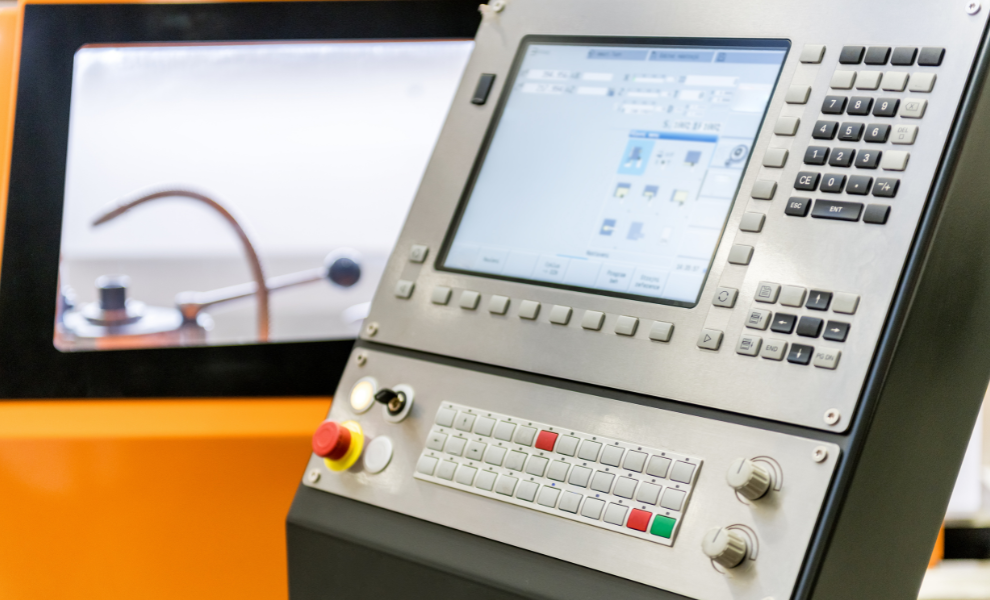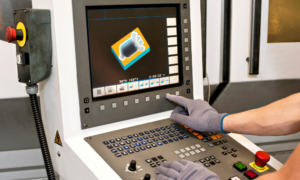The manufacturing industry has observed several transformations alongside technological advancement. Computer numerical control (CNC) is one such transformation that has enhanced efficiency in the manufacturing sector. It is a pre-programmed mechanism that streamlines activities by commanding machines on their movement to accomplish a task. For this purpose, there are specific tools that are also known as CNC machines.
Over the years, the global CNC industry has progressed remarkably. In 2024, the CNC market reached a valuation worth $20.4 billion, which is about to surpass $23 billion by 2026. The key factor for such growth is the increased requirement for manufactured products in the commercial and non-commercial sectors.
Let us thoroughly understand what computer numerical control is, its importance, and the applications of CNC machines in different domains.
What is Computer Numerical Control (CNC)?
Computer numerical control enables automation in the manufacturing process, bringing efficiency and saving time. The method includes pre-programmed software and tools that allow machines to make movements in a way that contributes to completing a task. As computers manage the whole process, experts define CNC as a computerized way to manufacture goods.
Industries such as automotive, aerospace, energy, agriculture, etc., use CNC methods the most to elevate performance of their activities. Apart from that, the usage of such techniques can be observed for 3D printing purposes, creating plastic and metal parts, including drills, lathes, grinders, and others.
Computer numerical control depends on the process of custom computer program using international standard language and machine control language, also known as G-code and M-code respectively. These are stored in the microcomputer existing in the machine control unit (MCU) of a system.
What is a CNC machine?
CNC machines enable computer numerical control in manufacturing with the use of microcomputers. These tools are highly effective while controlling machines to perform a manufacturing task, enabling automation.
Primarily, engineers construct a computer-aided design (CAD), including the design of a product or its parts that is to be manufactured. Following the construction, developers transform the design into G-code and include it to the MCU.
The next stage is to test the software to identify shortcomings in its operation. It is essential to identify and fix each vulnerability in the process to enhance performance. After monitoring and working on each stage, the CNC machine is placed and effectively used to manufacture parts and tools.
Importance of CNC machines:
CNC machines can remarkably be useful in production activities, streamlining the entire process with minimal possibilities for mistakes. Let us discuss the key benefits of this mechanism:
Limited Human Errors:
Humans can commit errors while executing repetitive tasks in manufacturing. CNC machines eliminate such errors, bringing efficiency in production and saving time. These tools are fully computerized; hence, they are significantly functional in completing repetitive activities.
Efficient Production and Operation:
CNC can remarkably boost production with limited flaws, meeting the high product demand in the market. Alongside that, the methodology optimizes operations of a manufacturing company, incorporating enterprise resource planning tactics.
Cost and Waste Reduction:
Computer numerical control can reduce production costs and waste with a margin. Companies can limit investments in hiring human resources alongside lowering operating and management costs. Moreover, the method offers high scalability while performing repetitive activities.
More Worker Safety:
The manufacturing domain includes bigger and more risky machinery, which can threaten worker safety. CNC machines seek minimal human intervention, ensuring higher worker safety.
Applications of CNC machines:
Automotive:
The automotive industry includes multiple stages, starting from constructing designs to producing tools. In each stage, CNC methods play an important role, while producing parts and bringing precision. Considering these benefits, the automotive industry highly integrates such methods. Valves, gearboxes, axles, cylinder blocks, etc., are the key parts that utilize CNC tools.
Aerospace:
The aerospace sector often includes many mission-critical components and spheres. There are multiple sensitive elements in the internal and external body of an airplane. Every element seeks accuracy, and CNC machines are very operational for this purpose. Airfoils, stator assemblies, electrical connectors, and landing gear elements and among the major tools that uses CNC.
Healthcare:
The enhanced requirement for medical equipment has boosted the implementation of CNC tools in the healthcare sector. These include both disposable and non-disposable tools which need to be high in quality and offer appropriate facilities. Orthotic implements, MRI tools, monitoring equipment, etc., are among the core aspects in healthcare that use CNC.
Wrapping up!
CNC machines received prominence in the late 1950s and significantly evolved afterward. Contemporarily, the method has become an integral part of the manufacturing domain. It offers flexibility, scalability, and efficiency alongside opportunities to save time. Follow our blog updates and stay aligned with the tech world.
Recommended For You:
Windows 10 Pro vs. Windows 10 IoT – 13 Important Differences



